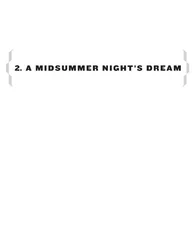“Because they were exposed to a certain virus, and we weren’t. You can look for reasons, and god knows a few people here have driven themselves half-crazy trying, but Tyler, that’s all there is.”
“What if we were saved for a different reason?”
“Saved?” Clark was remembering why he didn’t talk to Tyler very often.
“Some people were saved. People like us.”
“What do you mean, ‘people like us’?”
“People who were good,” Tyler said. “People who weren’t weak.”
“Look, it’s not a question of having been bad or … the people in there, in the Air Gradia jet, they were just in the wrong place at the wrong time.”
“Okay,” Tyler said. Clark turned away, and Tyler’s voice resumed almost immediately behind him, softer now, reading aloud: “ ‘She will be consumed by fire, for mighty is the Lord God who judges her.’ ”
Elizabeth and Tyler were living in the First-Class cabin of the Air France jet. He found her sitting in the sunlight on the rolling staircase that led up to the entrance, knitting something. He hadn’t spoken with her in a while. He hadn’t been avoiding her, exactly, but he certainly hadn’t sought her company.
“I’m worried about your son,” he said.
She paused in her knitting. The manic intensity of her first days here had dissipated. “Why?”
“Right now he’s over by the quarantined plane,” Clark said, “reading aloud to the dead from the Book of Revelation.”
“Oh.” She smiled, and resumed her knitting. “He’s a very advanced reader.”
“I think maybe he’s picked up some strange ideas about, well, about what happened.” He still had no words for it, he realized. No one spoke of it directly.
“What kind of strange ideas?”
“He thinks the pandemic happened for a reason,” Clark said.
“It did happen for a reason.”
“Well, right, but I mean a reason besides the fact that almost everyone on earth caught an extremely deadly swine-flu mutation. He seems to think there was some sort of divine judgment involved.”
“He’s right,” she said. She stopped knitting for a moment to count her rows.
He felt a touch of vertigo. “Elizabeth, what reason could there possibly be for something like this? What kind of plan would possibly require …?” He realized that his voice had risen. His fists were clenched.
“Everything happens for a reason,” she said. She didn’t look at him. “It’s not for us to know.”
Later that summer a band of religious wanderers arrived, headed south. The precise nature of their religion was unclear. “A new world requires new gods,” they said. They said, “We are guided by visions.” They said vague things about signals and dreams. The airport hosted them for a few uneasy nights, because this seemed less dangerous than running them off. The wanderers ate their food and in return offered blessings, which mostly involved palms on foreheads and muttered prayers. They sat in a circle in Concourse C and chanted at night, in no language anyone in the airport had ever heard. When they left, Elizabeth and Tyler went with them.
“We just want to live a more spiritual life,” Elizabeth said, “my son and I,” and she apologized for leaving everyone, as though her leaving was some sort of personal abandonment. Tyler looked very small as they left, trailing at the back of the group. I should have done more for her, Clark thought. I should have pulled her back from the edge. But it had taken everything he had to stay back from the edge himself, and what could he have done? When the group disappeared around the curve of the airport road, he was certain he wasn’t alone in his relief.
“That kind of insanity’s contagious,” Dolores had said, echoing his thoughts.
In Year Fifteen people came to the museum to look at the past after their long days of work. A few of the original First-Class lounge armchairs were still here, and it was possible to sit and read the final newspapers, fifteen years old, turning brittle pages in gloves that Clark had sewn inexpertly from a hotel sheet. What happened here was something like prayer. James, the first man who’d walked in, came to the museum almost every day to look at the motorcycle. He’d found it in Severn City in Year Two, and had used it until the automobile gas went stale and the aviation gas ran out. He missed it very much. Emmanuelle, the first child born in the airport, came in often to look at the phones.
There was a school here now, in Concourse C. Like educated children everywhere, the children in the airport school memorized abstractions: the airplanes outside once flew through the air. You could use an airplane to travel to the other side of the world, but — the schoolteacher was a man who’d had frequent-flyer status on two airlines — when you were on an airplane you had to turn off your electronic devices before takeoff and landing, devices such as the tiny flat machines that played music and the larger machines that opened up like books and had screens that hadn’t always been dark, the insides brimming with circuitry, and these machines were the portals into a worldwide network. Satellites beamed information down to Earth. Goods traveled in ships and airplanes across the world. There was no place on earth that was too far away to get to.
They were told about the Internet, how it was everywhere and connected everything, how it was us. They were shown maps and globes, the lines of the borders that the Internet had transcended. This is the yellow mass of land in the shape of a mitten; this pin here on the wall is Severn City. That was Chicago. That was Detroit. The children understood dots on maps— here —but even the teenagers were confused by the lines. There had been countries, and borders. It was hard to explain.
In the fall of Year Fifteen, something remarkable happened. A trader came through with a newspaper. He’d been coming to the airport since Year Six, and his specialties were cookware, socks, and sewing supplies. He camped for the night in the Air France jet, and came to Clark in the morning before he left.
“I’ve got something I thought you might like,” he said, “for that museum of yours,” and he handed over three sheets of rough paper.
“What is this?”
“It’s a newspaper,” the trader said.
Three consecutive issues, a few months out of date. It was published irregularly out of New Petoskey, the trader said. There were announcements of births and deaths and weddings. A column for bartering: a local man was seeking new shoes in exchange for milk and eggs; someone else had a pair of reading glasses that she was hoping to trade for a pair of jeans, size 6. There was a story about a group of three ferals who’d been sighted to the southwest of town, a woman and two children. Residents were urged to avoid them and, in case of accidental contact, to speak gently and avoid making any sudden movements. Something called the Traveling Symphony had just come through town, although Clark gathered that they weren’t just a symphony orchestra. There was a rapturous write-up of a performance of King Lear , with particular mention of performances by Gil Harris as Lear and Kirsten Raymonde as Cordelia. A local girl wished to announce that she had a litter of kittens to give away and that the kittens’ mother was a good mouser. There was a reminder that the library was always seeking books, and that they paid in wine.
The librarian, François Diallo, was also the newspaper’s publisher, and it appeared that when he had empty space in the newspaper he filled it with text from his collection. The first issue had an Emily Dickinson poem, the second an excerpt from a biography of Abraham Lincoln. The entire back of the third issue — it had apparently been a slow month for news and announcements — was taken up by an interview with the actress who’d played Cordelia, Kirsten Raymonde. She’d left Toronto with her brother at the time of the collapse, but she only knew this because her brother had told her. Her memories were limited, but there was a night just before the end that she remembered in detail.
Читать дальше












